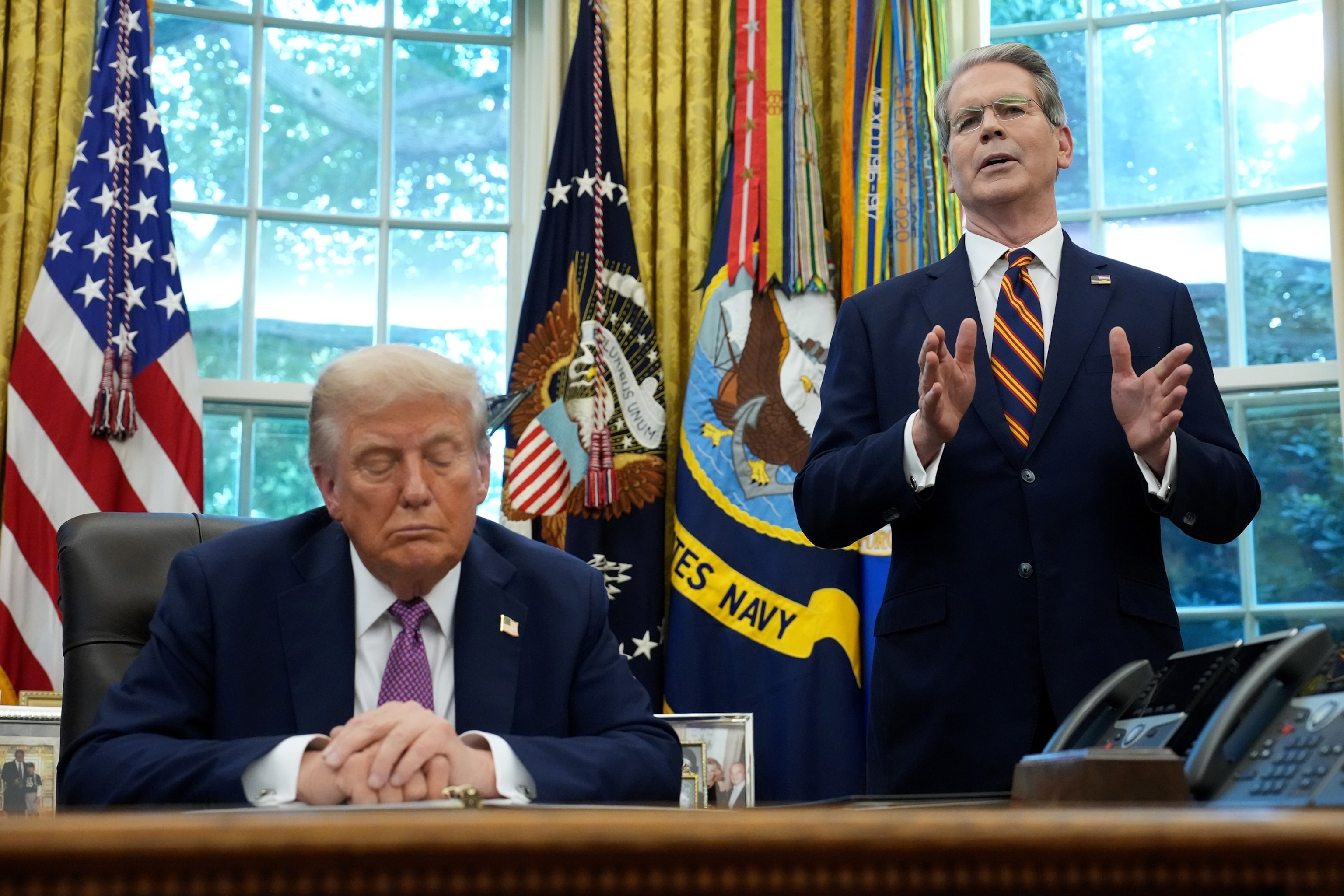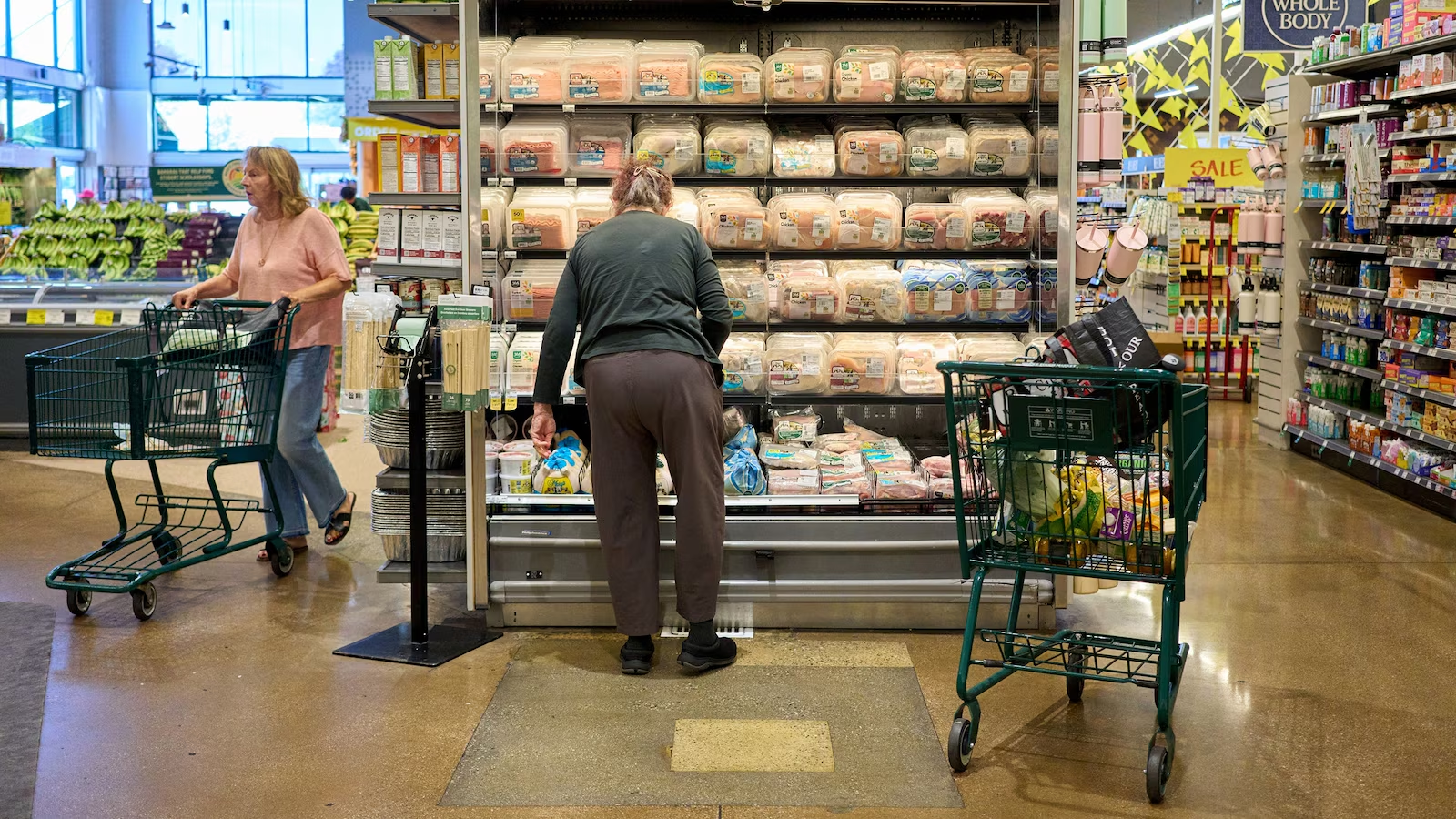The Supreme Court is set to hear oral arguments on Wednesday in a case that will determine the fate of President Donald Trump’s steepest tariffs, carrying implications for prices paid by shoppers and interest rates set by the Federal Reserve, economists told ABC News.
The nation’s highest court will weigh in on the lawfulness of far-reaching levies on dozens of countries unveiled in a Rose Garden ceremony that Trump dubbed “Liberation Day.” The case also concerns tariffs imposed on China, Mexico and Canada, as well as a baseline 10% levy slapped on nearly all imports.
The ruling could impact tens of billions in tax revenue and alter trade agreements struck with some of the largest U.S. trade partners, including the United Kingdom and China.
Some economists who spoke to ABC News said the case could alter costs borne by U.S. households and hiring decisions made by companies, though the effect may be limited since the Trump administration will likely seek to reimpose tariffs under other legal authorities.
Still, the economists added, the court’s ruling could have a profound impact on the U.S. economy for years to come, since a unilateral executive power to impose tariffs would establish a new lever for policies like taxation and trade at the heart of economic stewardship.
“The stakes are really high for the economy because tariffs have an effect on trade not only in the U.S. but across the globe,” Raymond Robertson, a professor of trade, economics and public policy at Texas A&M University, told ABC News.
Trump has repeatedly defended his legal authority to impose the tariffs and warned of economic damage if they were to be struck down.
“If we don’t win that case, we will be a weakened, troubled financial mess for many, many years to come,” Trump said last month at a White House event. “And if we do, we’re going to be the most powerful economic country in the world.”
Trump ratcheted up tariffs in recent months, in part due to powers invoked under the International Emergency Economic Powers Act, the legal authority at issue before the Supreme Court.
Tariffs stand at an overall average effective rate of 17.9%, the highest since 1934, the Yale Budget Lab found last week. Price levels are expected to climb incrementally this year as a result of the levies, representing a loss of about $1,800 for the average household, the group said.
“Higher tariffs are pushing up prices in some categories of goods, resulting in higher overall inflation,” Federal Reserve Chair Jerome Powell said at a press conference in Washington, D.C., last week, though he said the most likely outcome is a merely temporary price hike.
Inflation ticked up to 3% in September, reaching its highest level since January. Meanwhile, hiring has slowed in recent months, posing a risk of an economic double-whammy known as “stagflation.”
If the Supreme Court allows Trump’s steepest tariffs to stand, price increases may accelerate while economic uncertainty associated with the tariffs could put downward pressure on hiring, some economists said.
“If the tariffs are here to stay, then I would expect this leads to more price increases to come by those who have, for now, held back and not changed prices yet because they’re unsure about the permanence of these tariffs,” Felix Tintelnot, a professor of economics at Duke University, told ABC News.
Those economic conditions could make policy decisions more difficult for the Fed, since the central bank must balance a dual mandate to keep inflation under control and maximize employment, Tintelnot added, saying the Supreme Court decision may influence the level of interest rates.

Treasury Secretary Scott Bessent speaks alongside Donald Trump during a press availability in the Oval Office of the White House on September 05, 2025 in Washington, DC.
Kevin Dietsch/Getty Images
“If we remove these tariffs, it would reduce the inflationary pressure and that might give the Fed more room to cut interest rates than if we kept these tariffs for longer,” Tintelnot said.
Tariffs issued under the legal authority at question before the Supreme Court have accounted for about $90 billion in tariff revenue, raising a possibility of the funds being returned if the justices deem the tariffs unlawful, the Committee for a Responsible Federal Budget found. The ruling could in turn hold implications for the nation’s federal debt, the group said.
Still, some economists said the Supreme Court case would have little effect on inflation or interest rates due to the sheer size and inertia of the U.S. economy, as well as the Trump administration’s plans to impose tariffs under other legal authorities.
Trump would still retain the power to impose sector-specific tariffs and the ability to impose a 15% tariff for up to 150 days under the Trade Act of 1974, which allows the president to address trade disparities with other countries.
“There will be efforts to rebuild the current set of tariffs even if these are struck down,” Jason Miller, a professor of supply chain management at Michigan State University, told ABC News. “Importers in no way, shape or form should anticipate that even if these are struck down, that these tariffs are going away.”
The Trump administration touts tariffs as part of a wider set of “America First economic policies,” which have “sparked trillions of dollars in new investment in U.S. manufacturing, technology, and infrastructure,” according to the White House’s website.
A Supreme Court ruling against the president’s steepest tariffs could scuttle some of the promised investment and country-by-country trade agreements, some economists said, but they cast doubt on the staying power of the commitments regardless of the court’s decision.
“These deals are fuzzy,” Matias Vernengo, a professor of economics at Bucknell University, told ABC News.
Still, even economists who downplayed the short-term impact of the court’s decision acknowledged significant implications for the years-long outlook of the economy.
“The stakes are less the short-run effects tariffs would have and more the long-run effects. If this president or any president can make changes at the last minute, it undermines the possibility of having stable rules for trade and the organization of the world economy,” Vernengo said.

